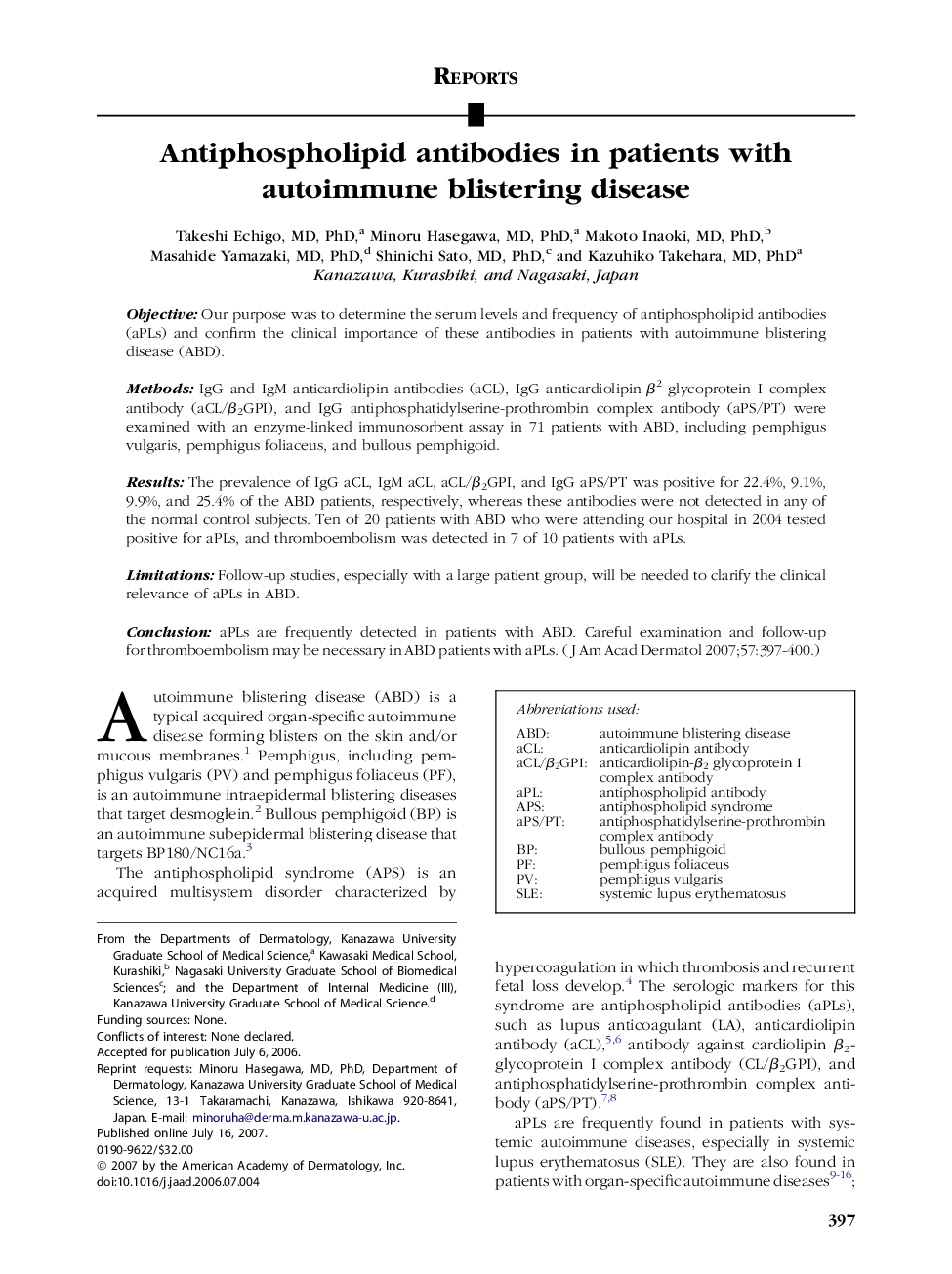| Article ID | Journal | Published Year | Pages | File Type |
|---|---|---|---|---|
| 3210772 | Journal of the American Academy of Dermatology | 2007 | 4 Pages |
ObjectiveOur purpose was to determine the serum levels and frequency of antiphospholipid antibodies (aPLs) and confirm the clinical importance of these antibodies in patients with autoimmune blistering disease (ABD).MethodsIgG and IgM anticardiolipin antibodies (aCL), IgG anticardiolipin-β2 glycoprotein I complex antibody (aCL/β2GPI), and IgG antiphosphatidylserine-prothrombin complex antibody (aPS/PT) were examined with an enzyme-linked immunosorbent assay in 71 patients with ABD, including pemphigus vulgaris, pemphigus foliaceus, and bullous pemphigoid.ResultsThe prevalence of IgG aCL, IgM aCL, aCL/β2GPI, and IgG aPS/PT was positive for 22.4%, 9.1%, 9.9%, and 25.4% of the ABD patients, respectively, whereas these antibodies were not detected in any of the normal control subjects. Ten of 20 patients with ABD who were attending our hospital in 2004 tested positive for aPLs, and thromboembolism was detected in 7 of 10 patients with aPLs.LimitationsFollow-up studies, especially with a large patient group, will be needed to clarify the clinical relevance of aPLs in ABD.ConclusionaPLs are frequently detected in patients with ABD. Careful examination and follow-up for thromboembolism may be necessary in ABD patients with aPLs.
